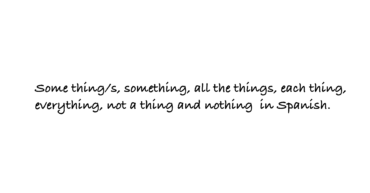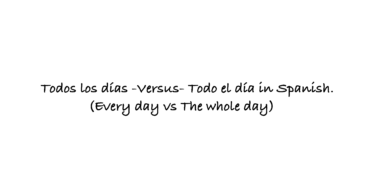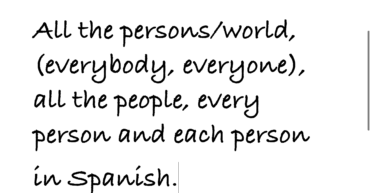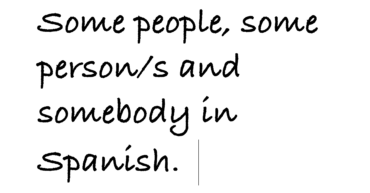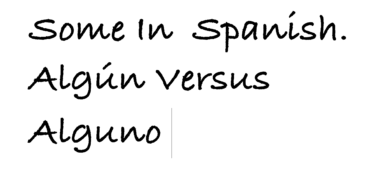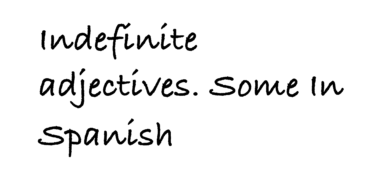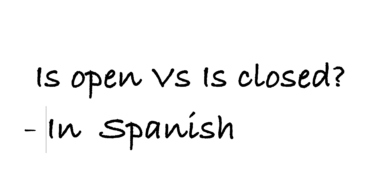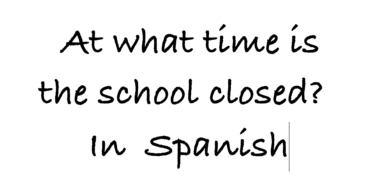Time to use now the noun –COSA– with the indefinite adjective –SOME-, –EVERY– and –NONE– that in communication matters, we do use always; The noun as we’ve said is going to be THING, in its plural/singular mode – COSA, COSAS-: ALGUNA COSA SOME THING ◊ Note that in this case, we are seeing a singular/feminine […]
In this post, we are going to see the already known expression – TODOS LOS DÍAS– and the change of its meaning in its singular mode –TODO EL DÍA-. First remember: TODOS LOS DÍAS ALL THE DAYS (EVERY DAY) ◊ Note: TODOS, is a plural/masculine indeterminate adjective, as –DAYS– is a masculine/plural […]
Let’s use now the noun –DÍA– with the indefinite adjective –SOME-, –EVERY– and –NONE– that in communication matters, we do use always; The noun as we’ve said is going to be DAY, in its plural/singular mode – DÍA, DÍAS-: ALGÚN DÍA SOME DAY ◊ Note that in this case, we are seeing a singular/masculine noun, […]
It is time to see the indefinite adjective –NONE– using it with nouns that in communication matters, can eventually be used, but specially it is very common the pronoun of it; The noun is going to be again, PERSON in its plural/singular mode – PERSONA, PERSONAS- and PEOPLE -GENTE-. These indefinite adjectives do not exist […]
In this very post we are going to see the indefinite adjective –EVERY/ALL– using it with a noun –PERSON– in its plural/singular mode – PERSONA/PERSONAS, WORLD –MUNDO– and PEOPLE –GENTE-. Remember first the table of the indeterminate adjective EVERY/ALL: EVERY/ALL MASCULINO FEMENINO SINGULAR TODO TODA PLURAL TODOS TODAS → As we are expressing a big […]
It is time to start playing with this first indefinite adjective –SOME– using it with nouns that in communication matters, we do use very often; The first noun is going to be PERSON in its plural/singular mode – PERSONA, PERSONAS– and PEOPLE -GENTE-. Remember first the table of the indeterminate adjective SOME: SOME MASCULINO FEMENINO […]
Remember in the previous post, we had seen that there were two indefinite adjectives for a masculine/singular nouns and we had to explain the use of them, because without knowing it, in the first place, it made no sense at all. Let’s remember the example that we had given: PADRE → FATHER Now, let’s try […]
Before seeing the regular verbs in the indicative present tense, we are going to go through the indefinite adjectives. It is a very important part, because it will allow us to express things that are very often used in communication terms: someday, sometimes, everyday, somebody, everybody, so on… Even though the use is easy and […]
We had seen before in the explanation of temporary adjectives with the verb –ESTAR-, these two adjectives –OPEN and CLOSED– that we have used in the previous lesson with time expressions. Of course, there is no need to tell time when using them, so, in this post, we are going to review and refresh our […]
We are going to introduce the opposite adjective of OPEN→CLOSED that will be useful as well, for our communication, eventually. Of course, like English, we do have the verb -TO CLOSE- to express when a place closes, but it is not time yet to see verbs, so we will stick with -SER- and -ESTAR- and […]

